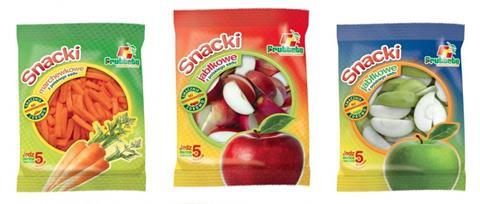
The market for fresh-cut produce market in eastern Europe remains a difficult one in which to achieve significant growth, according to one of the region's leading marketers.
As reported in the September issue of Eurofruit, Polish company Frutteto – a subsidiary of the Eurosad group – regards only a handful of countries in the region as showing enough potential for commercial expansion in the short term when it comes to value-add, prepared fruit and vegetables.
'People are not yet ready to pay extra for an easy, fresh snack,' says Frutteto's owner Paulina Kolacz-Lewandowska. 'They still prefer to buy fruit or vegetables at street markets, where prices are low, and then prepare a salad at home. Cost saving is what still counts the most in eastern Europe.'
For Kolacz-Lewandowska, one of the major obstacles to growth is consumers' unfamiliarity with fresh-cut produce.
'People are not used to such products,' she continues. 'They are still very unpopular and, as a result, people become suspicious about their freshness, additives and so on.'
Nevertheless, Frutteto believes there is plenty of potential for the fresh-cut industry stored up in markets such as Poland, Ukraine and Russia, but it will require more time than perhaps was expected three years ago.
'I remember when we started our business in 2011 and market specialists were saying that in three to five years our markets would be flooded with fresh convenience products,' she recalls. 'From then, two-and-a-half years have passed and we cannot see any signs that in a year the situation will change radically for the better.'
Kolacz-Lewandowska points out that the best growth prospects are currently to be found in Hungary, Czech Republic and Slovakia, where fresh convenience items are a more common sight than, for example, in Poland.
'Even though those countries are smaller and less populated than our country, the average consumption of packed sandwiches is seven times higher. I would also add Latvia and Estonia, which are very well developed countries.'
She adds: 'Russia has enormous potential, but it is also problematic because of its huge area and connected logistics difficulties. In our business, it would be extremely difficult to export fresh-cut products to our non-EU, eastern neighbours because of customs procedures, transport restrictions and queues at borders can kill the business for products with short shelf-life.'






No comments yet